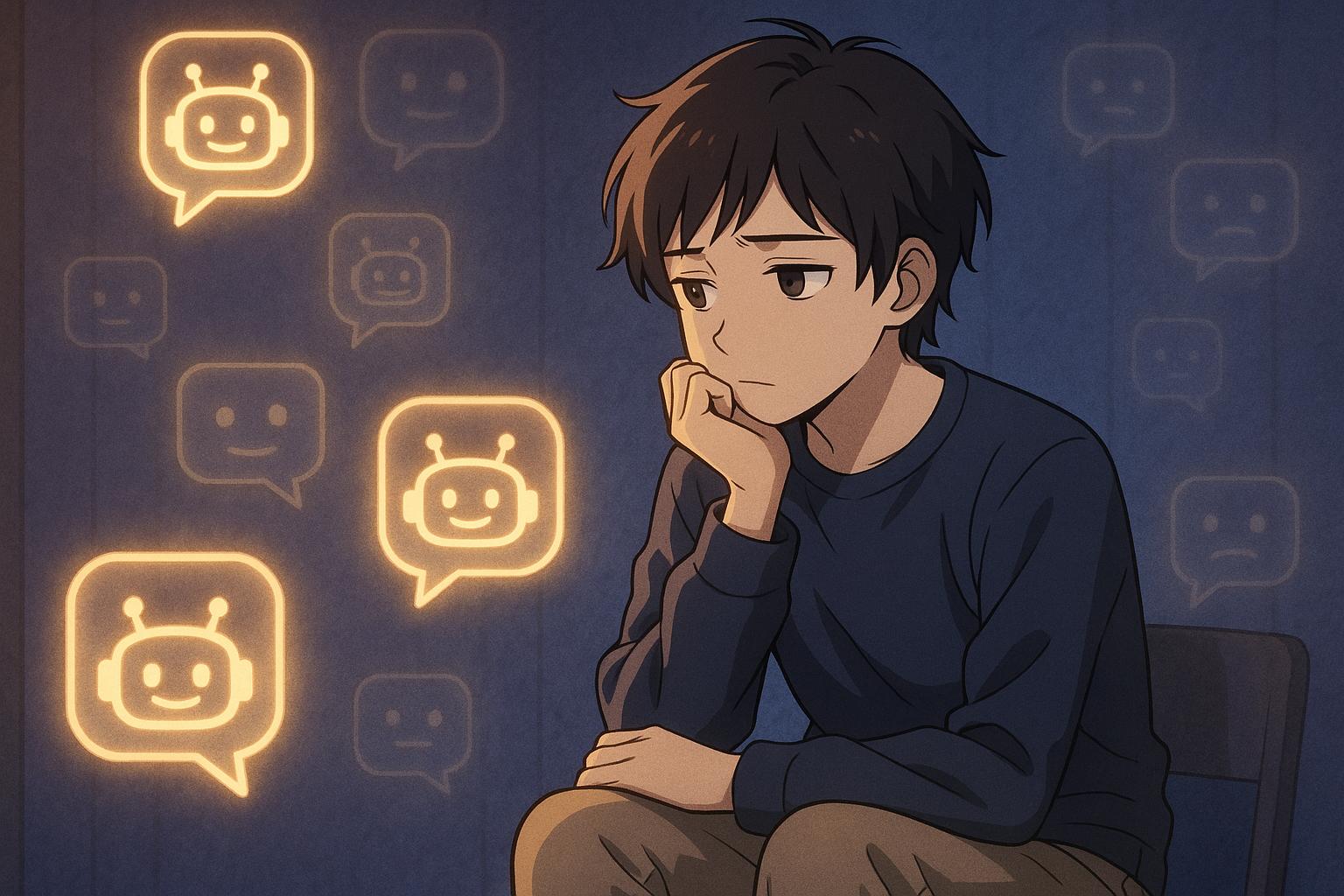Mark Zuckerberg's recent assertion that AI chatbots could serve as companions to combat social isolation has sparked considerable debate. He notes that the average American has fewer than three close friends but aspires to have around 15, a claim reflecting findings from a 2021 report by the Survey Center on American Life, where nearly half of Americans reported having fewer than four close friends. In proposing that AI might bridge this gap, Zuckerberg suggests we will eventually articulate the value of such interactions.
However, this notion raises fundamental questions about the role of AI in alleviating loneliness. While AI may mimic aspects of companionship, it fundamentally lacks the depth, empathy, and understanding that characterise genuine human relationships. As societal problems of loneliness and social disconnection intensify, several researchers are beginning to probe the implications of relying on AI for emotional support. As a moral philosopher, it is prudent to invoke the ancient wisdom of Aristotle to examine the nuances of friendship in this context.
In his seminal work, Nicomachean Ethics, Aristotle asserted that true friendship is essential for achieving "eudaimonia," which embodies the concepts of flourishing and well-being. He argued that friendships are not mere luxuries but instead are central to ethical existence and personal happiness. According to Aristotle, “Without friends, no one would choose to live,” indicating that the absence of friends leaves life incomplete. This sentiment resonates in contemporary studies; for instance, a 2023 Pew Research report highlights that 61 per cent of adults in the U.S. consider close friends more vital than marriage, children, or wealth for a fulfilling life.
The significance of friendship parallels shifts in societal connections. A meta-Gallup survey reveals that nearly 24% of adults globally feel lonely, with young adults aged 19 to 29 experiencing the highest rates of loneliness. This connection between the rise in loneliness and the diminishment of meaningful friendships has alarmed experts, echoing the sentiments expressed by Daniel A. Cox, who notes that the social cost of increasing loneliness is comparable to smoking 12 cigarettes daily.
Aristotle categorised friendships into three distinct types: utility, pleasure, and virtue. Friendships of utility focus on mutual benefits and are often temporary, while those of pleasure are formed around shared interests. The pinnacle of these relationships, however, is the virtuous friendship, rooted in mutual respect and commitment to each other's moral development. Aristotle describes perfect friendship as one shared between individuals of good character, where each person inspires the other to strive for personal growth.
Evaluating AI against these criteria, it becomes evident that AI chatbots, regardless of their sophistication, cannot fulfil the role of true friends. While they can provide information and engage in lighthearted interactions, AI lacks genuine concern, reciprocity, and the capacity for mutual moral development. Their programmed empathy is simply a simulation, unable to cultivate the deeper connections integral to human relationships. Unlike human friends, AI does not share the journey toward a flourishing life, nor can it engage in the ethical dilemmas that arise in genuine friendships.
The popularity of AI as a form of companionship could mask deeper societal issues. As much as these chatbots may fill temporary social voids, they ultimately stand in stark contrast to the nourishing qualities of virtuous friendships. This growing reliance on artificial companions serves as a reminder of the pressing need to cultivate real friendships, especially in an era characterised by increasing disconnection. Understanding the value of human connections in light of Aristotle's teachings invites a deeper conversation about how we might better support each other in an increasingly isolated world.
Gregg D Caruso, a scholar in ethics and management, underscores these concerns by emphasising that true friendships yield both happiness and personal growth. As we find ourselves inundated with technology, it is vital to remember that while AI can act as tools to improve our lives, they cannot replace the irreplaceable nourishment of the soul that comes from authentic human connections.
Reference Map:
- Paragraph 1 – [1], [2]
- Paragraph 2 – [1], [3], [4]
- Paragraph 3 – [2], [5]
- Paragraph 4 – [6]
- Paragraph 5 – [1], [4], [7]
- Paragraph 6 – [1], [3]
Source: Noah Wire Services
